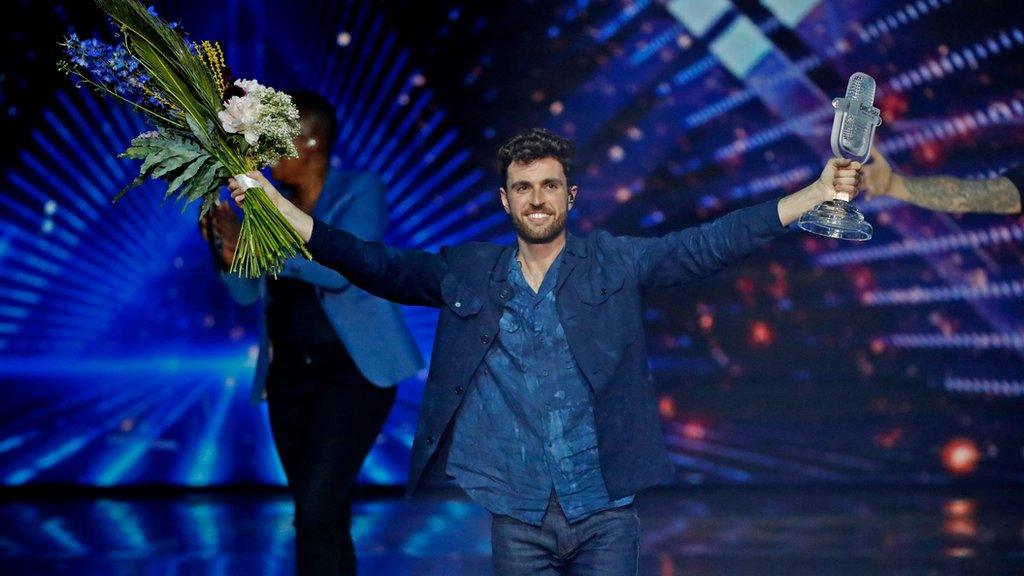Eurovision 2019: Five lessons learned
- Published
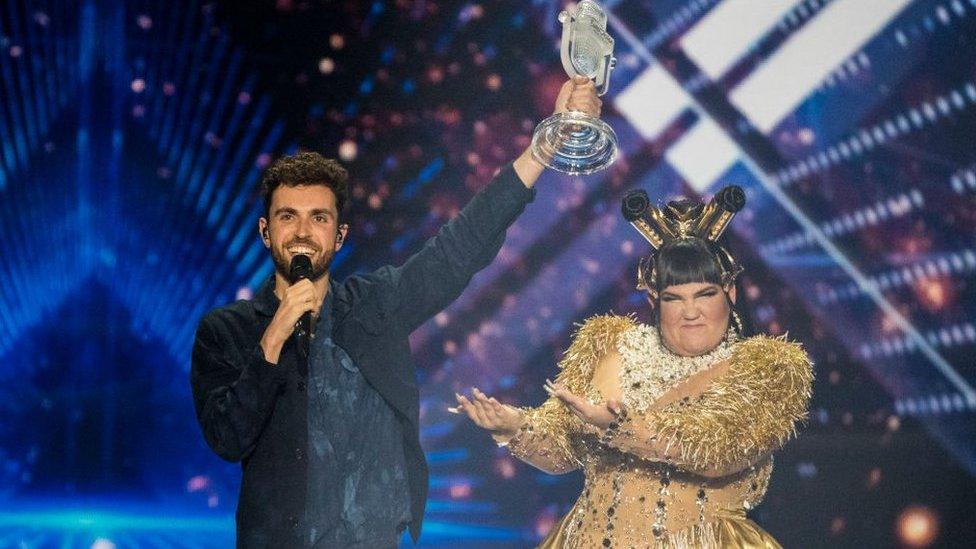
Duncan Laurence receives his trophy from last year's winner Netta
"I'm so happy right now," said Duncan Laurence shortly after securing the Netherlands' first win at the Eurovision Song Contest since 1975.
"This can't be described in words," the Dutch singer told reporters. "My dream came true."
Asked to posit what life lessons he had gleaned from his Eurovision experience, the 24-year-old said it had taught him to "stick to what you love and dream big always."
But they weren't the only lessons to be learned from the ceremony, held this year in Tel Aviv in Israel. Here are five things we took away from the event.
1) You can't keep politics out
The organisers of the contest insist it is a non-political event. Yet events on Saturday proved they are deluding themselves.
It was inevitable tensions in the region would be referenced in some fashion, and Icelandic band Hatari made sure they were by displaying Palestinian banners on live television.
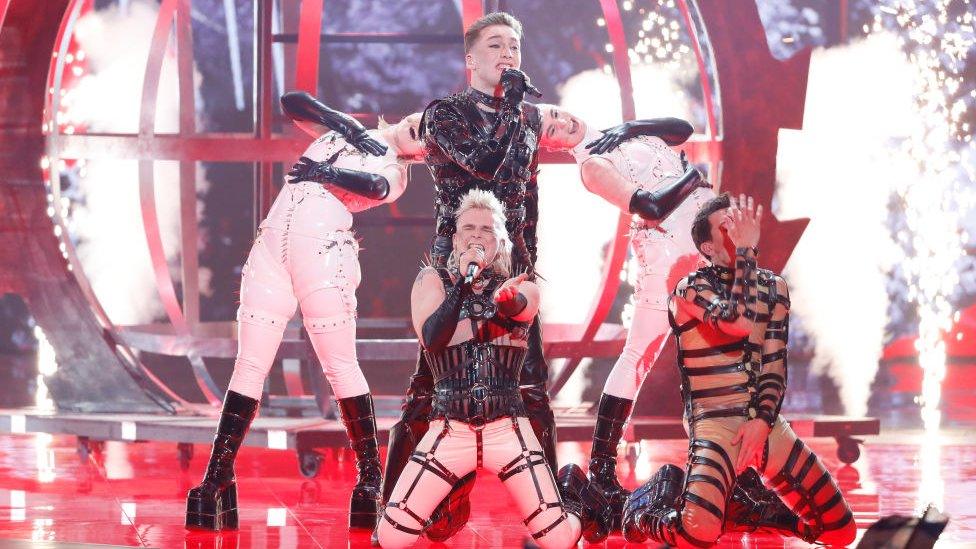
Hatari put the BDS into BDSM on Eurovision's big night
Earlier Madonna made her own statement by having two of her dancers, one with an Israeli flag on his back and another with a Palestinian flag on hers, walk arm in arm.
"I am grateful for the opportunity to spread the message of peace and unity with the world," she tweeted later, external.
How can Eurovision continue to consider itself neutral when competitors and star guests alike refuse to play along?
2) A good song beats great staging
There were some spectacular set-pieces this year, with Australia's bendy pole routine being an obvious highlight.
Yet Eurovision is primarily a song contest, and a good song doesn't need bells and whistles to make an impact.
Laurence chose a pared-down presentation that suited the simplicity and sincerity of his song Arcade perfectly.
Fireworks and flame plumes are all very well, but Laurence's victory - like Portugal's in 2017 - is a reminder that less can sometimes be more.
At the winner's press conference, Laurence said pyrotechnics would have been "a bit much" for Arcade but declined to pooh-pooh their use out of hand.
3) A big name can still disappoint
Madonna was Eurovision's ace in the hole - an incentive for people who would not normally tune in to make an appointment to view.
Yet she struggled to hit the high notes of Like A Prayer, while her new track Future, performed with rapper Quavo, is not one of her best.
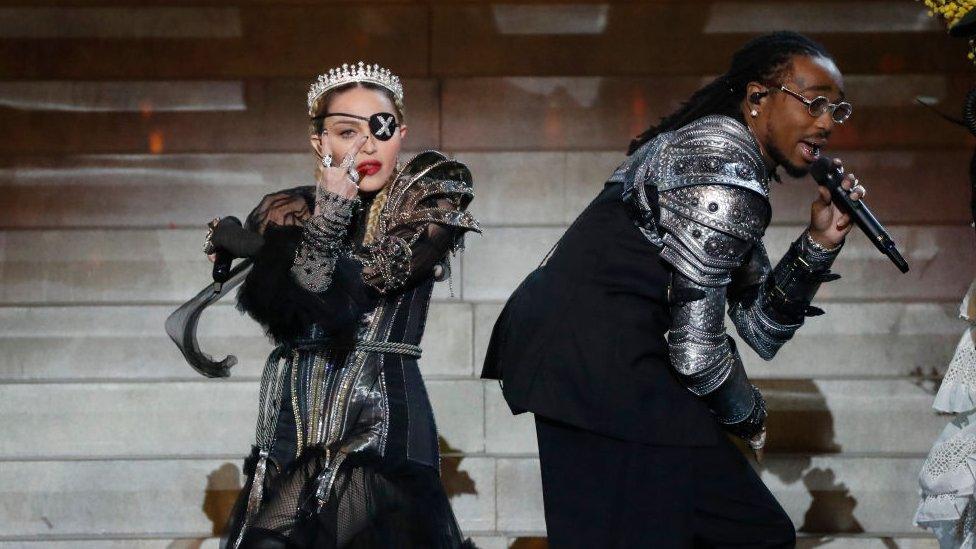
Madonna performed with rapper Quavo
Earlier this week, Eurovision supremo Jon Ola Sand claimed that Madonna had yet to sign a contract and could not perform without one.
In the cold light of day, would it really have been so terrible if she hadn't?
Laurence, by the way, gallantly insisted that Madonna had done "a great job" and that he had thoroughly enjoyed her performance.
4) The big five are not so big
Five nations put more money into Eurovision than other countries so are allowed to leapfrog the semi-final stage.
The downside is it can foster resentment among fans who believe they should earn their places in the final like everyone else.
There was certainly no ill-will towards Italy, who came second with Mahmood's Soldi - the most streamed song in the competition.
But three other members of the "big five" - Germany, Spain and the UK - ended up outside the Top 20, with the latter finishing dead last.
The revelation that Germany received precisely nul points in the public vote was a particularly shaming moment.
5) It's North Macedonia now
Under the terms of an agreement reached last year with Greece, the country formerly known as the Former Yugoslav Republic of Macedonia was allowed to give itself a new name.
Thanks to Tamara Todevska's impressive showing at Eurovision, a lot more people around the world know that name is North Macedonia.
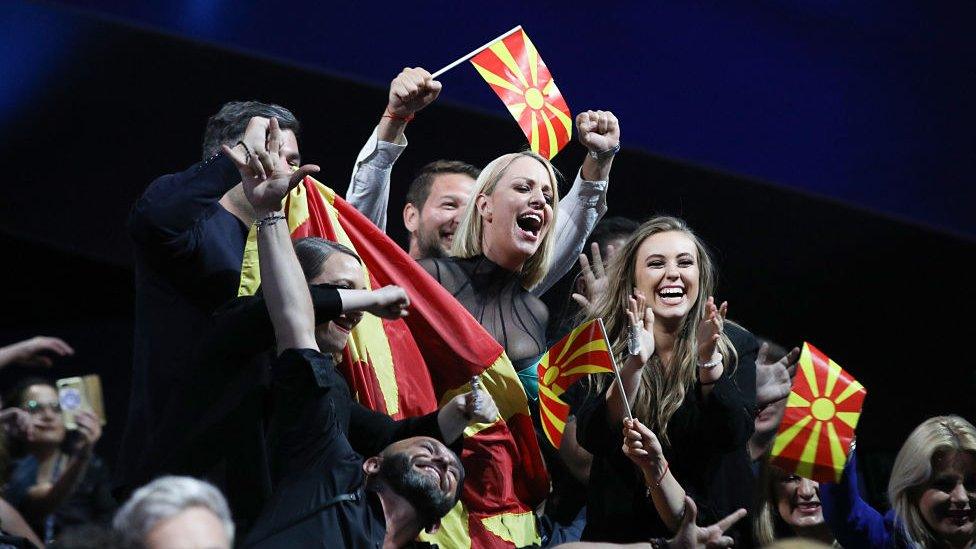
Tamara Todevska topped the leader board at one stage
Eurovision's artistic credentials are always up for debate, but there's no questioning its services to world geography knowledge.
That said, most people still don't know how to find San Marino on a map.
The Eurovision Song Contest final is now available on the BBC iPlayer.

Follow us on Facebook, external, on Twitter @BBCNewsEnts, external, or on Instagram at bbcnewsents, external. If you have a story suggestion email entertainment.news@bbc.co.uk.
- Published19 May 2019
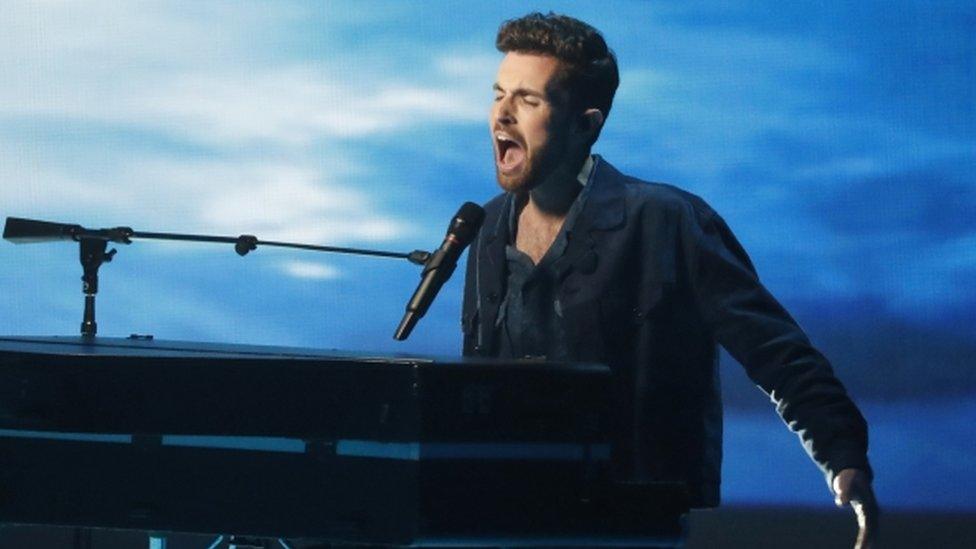
- Published19 May 2019
